(Dan Tri) - Slang is not entirely good or bad. If used in moderation, slang helps communication become less boring, but if abused and used in the wrong situation, it will become ridiculous and difficult to control.
The above information was given by Dr. Mouk Khemdy, University of Languages, National University of Laos, at the international conference "Vietnamese Language and Culture - Integration and Development", organized by Hanoi University and National University of Laos on October 30 in Hanoi.
"Tongue twisting" with homemade language
Not long ago, Dan Tri newspaper reported on the topic of slang and "homemade" language that is spreading rapidly on social networks.
"Hong baby. I don't follow you but I'm asking to print your private information", this is an unintentional comment from a Gen Z (young people born between 1997 and 2012) on social media.
Original text of this sentence: "No baby, I'm not following you, I'm asking for "in4" - abbreviation of info or information, meaning personal information.
It can be seen that from a common sentence, young people have used slang to turn it into another sentence, becoming a new trend on social networks.
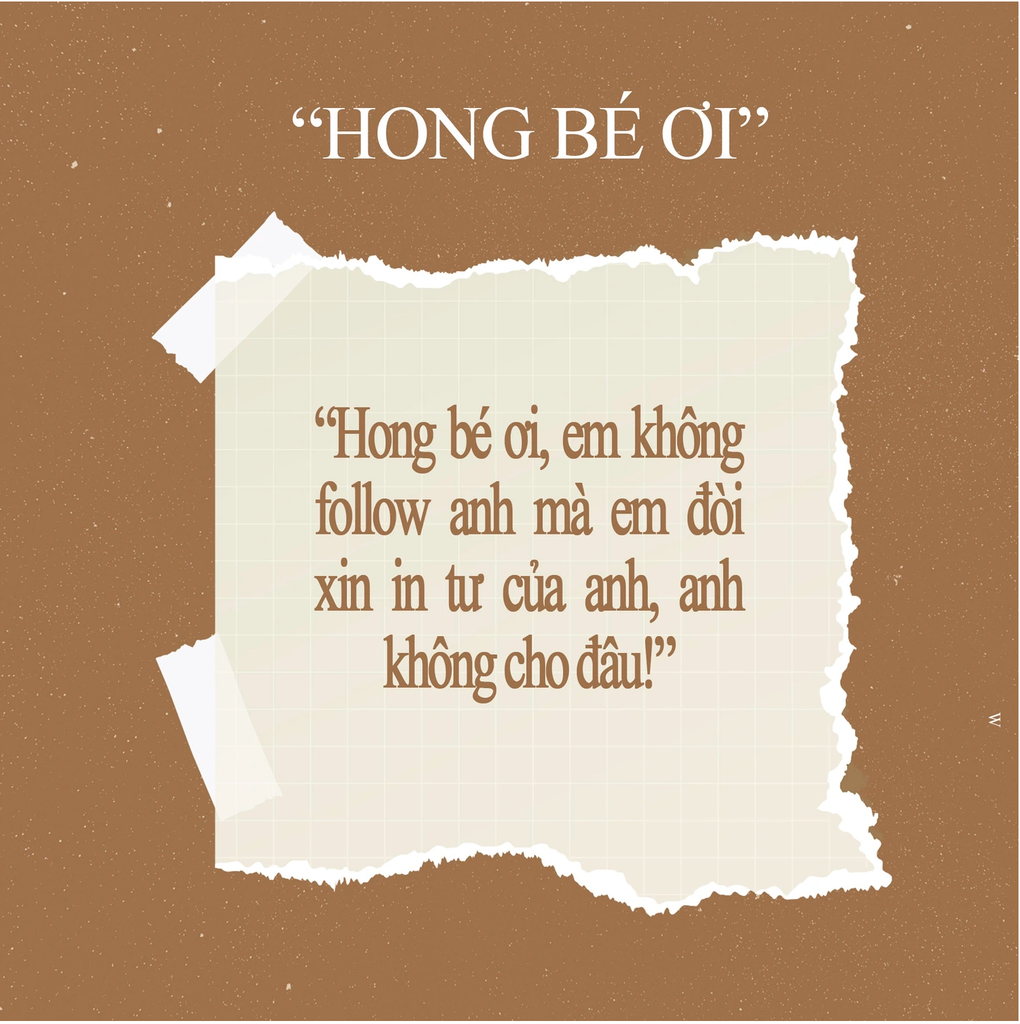
"Hong baby" is widely used by netizens as a cute way to say "no" (Photo: Tue Nhi)
Or a conversation between two students as follows: "I don't know, today I suddenly feel like dressing in a girly style" - translation: "I don't know, today I suddenly feel like dressing in a girly style"….
These "homemade" phrases are increasingly appearing in life. According to Dr. Mouk Khemdy, slang phrases are becoming more and more popular through social networking platforms such as TikTok, Facebook, ... by combining many characters, languages, symbols or mixing with different languages, without following any rules.
Slang among young people is becoming a controversial topic because more and more people abuse it in administrative documents, communication or even exams of the young generation.
In particular, slang is also transformed into adult language to bypass the censorship policies of social networking platforms.
According to research and surveys that Dr. Mouk Khemdy presented in the report "Slang on social networks Tik Tok and Facebook of Hanoi youth today", Hanoi youth use slang a lot in daily communication.
Slang is not only used in spoken language but also in written language, and is commonly used on social media.
Two processes that create slang
According to Dr. Mouk Khemdy, there are many ways to create slang when communicating on Tik Tok and Facebook.
According to this expert's research results, the slang creation system of Hanoi youth is divided into two main processes: the process of creating slang by combining words and the process of creating slang by other special features.
This process can be divided into categories: use of slang through spelling changes, use of gestural slang, use of words that imitate natural sounds and use of symbols and numbers of slang use among today's youth.
For example: "Banh beo" is slang by combining words; "Oppa" is slang by borrowing from foreign languages; "cua kao" is slang by changing the final consonant; "Cam om nhiu" is slang by changing the vowel...
"Slang is neither all good nor all bad. If used appropriately and sparingly, slang can make communication less boring.
However, if abused and used in the wrong context, slang will become ridiculous, arbitrary, and difficult to control.
Therefore, I think it is necessary to orient young people to communicate in a positive direction, in the right way, in the right place and according to the right standards. Only then will Vietnam's language treasure become increasingly rich and beautiful," said Dr. Mouk Khemdy.
The workshop focused on discussing the following issues: Vietnamese language in the process of integration and development; Vietnamese culture in the process of integration and development; Linguistic and cultural exchange between Vietnamese and other languages; Traditional and modern foreign language teaching methods; Compiling teaching materials and textbooks for Vietnamese as a foreign language; International cooperation in research and teaching of Vietnamese language and culture; Training of translators and interpreters.
According to Dr. Luong Ngoc Minh, Vice Principal of Hanoi University, in the integration period, Vietnamese is also an important tool for communication and cultural dialogue to delve into the depth of Vietnamese culture.
"This is not only an opportunity to connect experts, scientists , domestic and international organizations, but also to spread, inspire, and together build a community of researchers and teachers of Vietnamese language and culture in the region and around the world," said Dr. Minh.
Source: https://dantri.com.vn/giao-duc/trao-luu-tieng-long-ngon-tu-tu-che-cua-gen-z-hieu-sao-cho-dung-20241029225748457.htm






![[Photo] National Assembly Chairman Tran Thanh Man attends the VinFuture 2025 Award Ceremony](/_next/image?url=https%3A%2F%2Fvphoto.vietnam.vn%2Fthumb%2F1200x675%2Fvietnam%2Fresource%2FIMAGE%2F2025%2F12%2F05%2F1764951162416_2628509768338816493-6995-jpg.webp&w=3840&q=75)
![[Photo] 60th Anniversary of the Founding of the Vietnam Association of Photographic Artists](/_next/image?url=https%3A%2F%2Fvphoto.vietnam.vn%2Fthumb%2F1200x675%2Fvietnam%2Fresource%2FIMAGE%2F2025%2F12%2F05%2F1764935864512_a1-bnd-0841-9740-jpg.webp&w=3840&q=75)








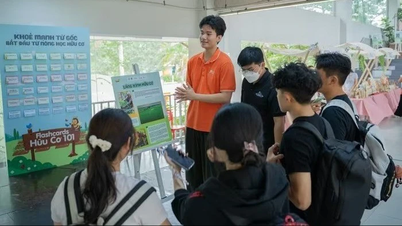





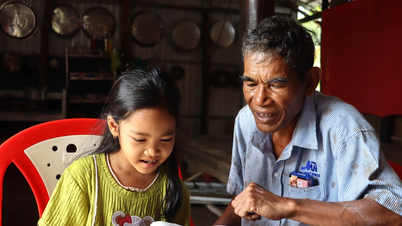



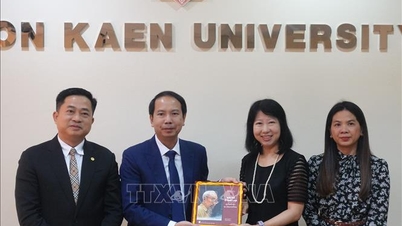

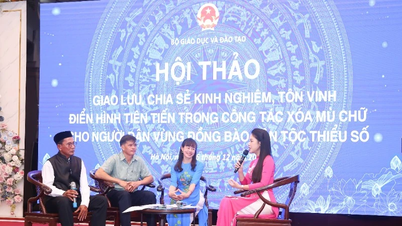




















































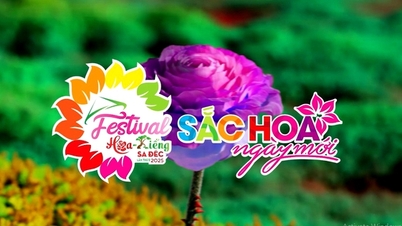


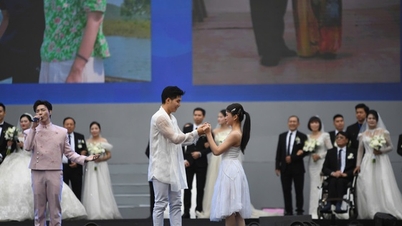


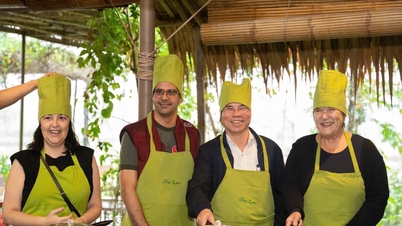

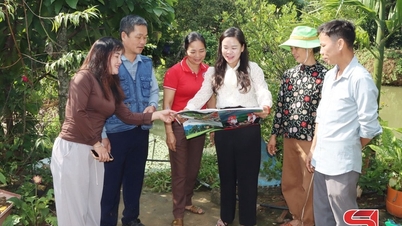



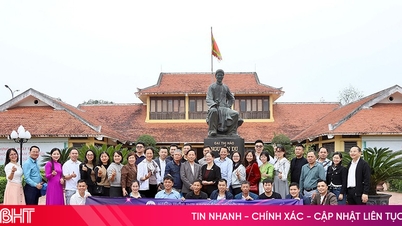
















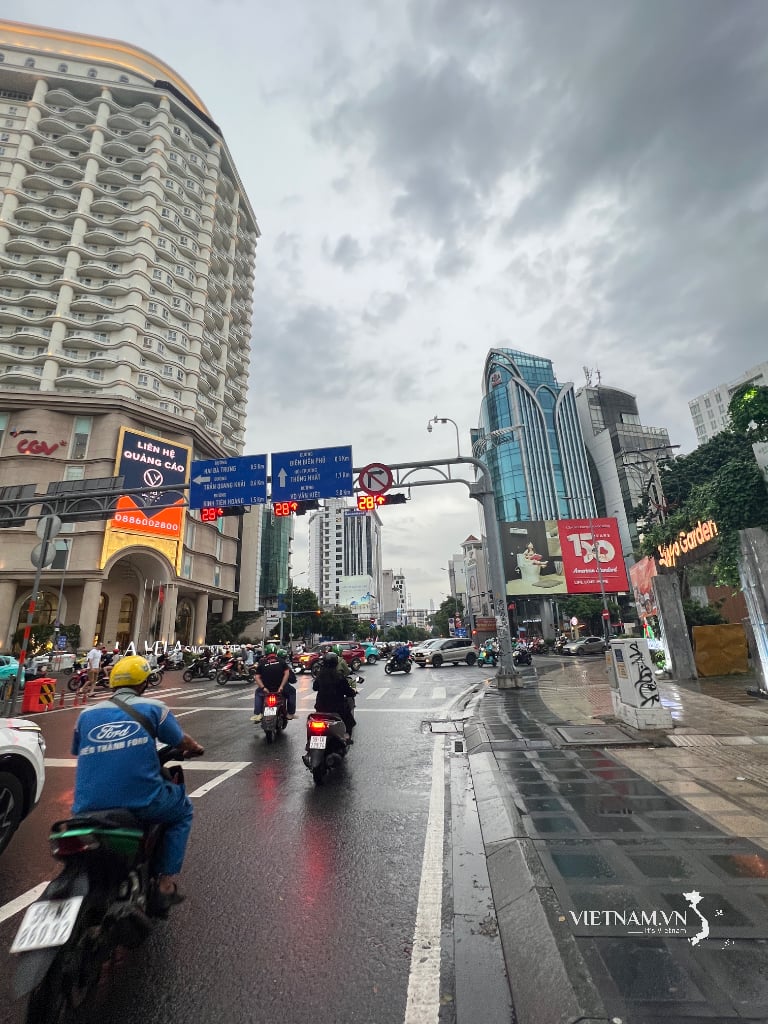





Comment (0)